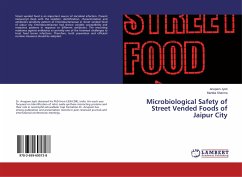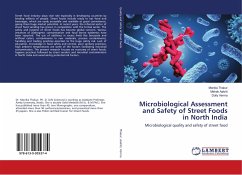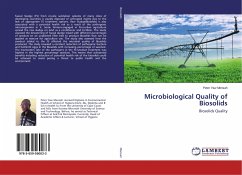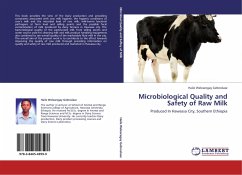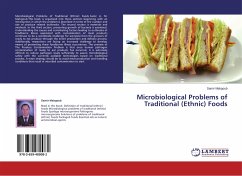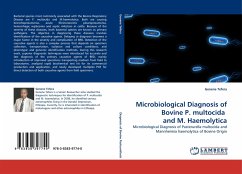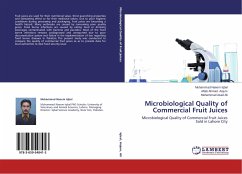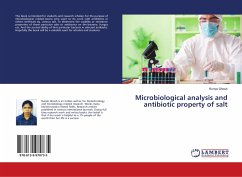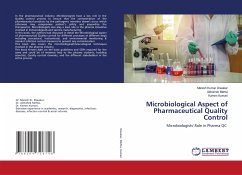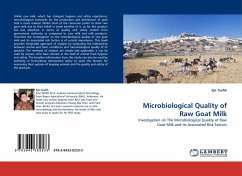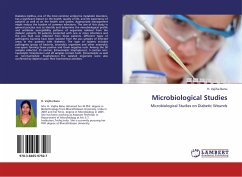
Microbiological Studies
Microbiological Studies on Diabetic Wounds
Versandkostenfrei!
Versandfertig in 6-10 Tagen
32,99 €
inkl. MwSt.

PAYBACK Punkte
16 °P sammeln!
Diabetes mellitus, one of the most common endocrine metabolic disorders, has a significant impact on the health, quality of life, and life expectancy of patients as well as on the health care system. Appropriate management might reduce the burden of common infections. The aim of this study in general practice was to identify and determine the microbiological profile and antibiotic susceptibility patterns of organisms isolated from the diabetic patients. 50 patients presented with one or more infections and the pus fluid was collected from these patients. Different types of pathogenic bacteria ...
Diabetes mellitus, one of the most common endocrine metabolic disorders, has a significant impact on the health, quality of life, and life expectancy of patients as well as on the health care system. Appropriate management might reduce the burden of common infections. The aim of this study in general practice was to identify and determine the microbiological profile and antibiotic susceptibility patterns of organisms isolated from the diabetic patients. 50 patients presented with one or more infections and the pus fluid was collected from these patients. Different types of pathogenic bacteria have been isolated from the pus samples of infected areas in the patients with diabetes. The type of isolates includes pathogenic group of bacteria, anaerobic organisms and other anaerobic non-spore forming Gram positive and Gram negative rods. Among the 50 samples collected, 25 contain, -haemolytic Staphylococci, 5 contain non-haemolytic Streptococci and 20 samples contain both, -haemolyticas well as non-haemolytic Staphylococci. The isolated organisms were also confirmed by depend upon their biochemical activities.



